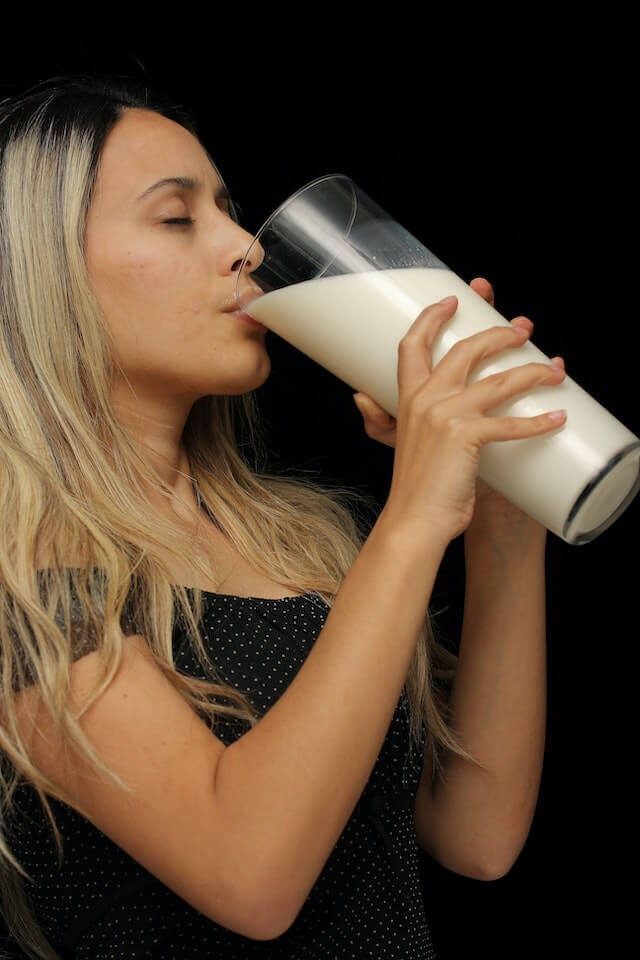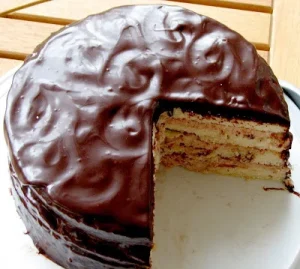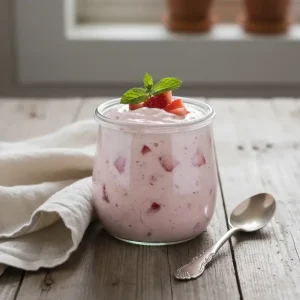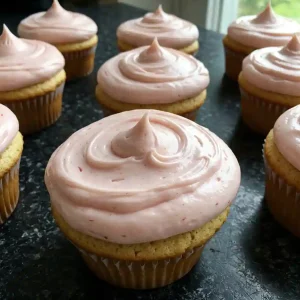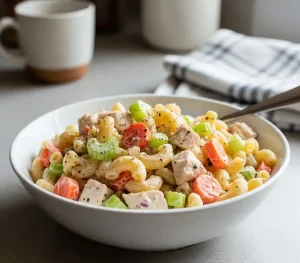Wondering can we drink milk during periods? I’ll talk about it in detail in this guide. So make sure to read it till the end.
Many ladies have uncomfortable symptoms during periods. Some foods can diminish these symptoms, whereas others can make them worse.
The symptoms include headaches, diarrhea, bloating, nausea, abdominal cramps, and bloating.
If you suffer from these symptoms every month, adding certain foods and drinks to your diet and excluding others can help you feel better.
Is Milk Good For Heavy Periods?
Yes, milk can be great for heavy periods. Calcium, which is abundant in milk and is important for controlling muscle contractions overall and in the uterus specifically, is found in milk.
The intensity and duration of menstrual cramps, which can be linked to heavy periods, may be lessened with adequate calcium levels.
Other necessary nutrients, including protein, vitamins, and minerals that support general health and well-being, are also provided by milk.
While adding milk to a balanced diet may not directly address high period flow, it can help promote better menstrual health.
Consult a healthcare provider if you’re concerned about your heavy periods for an accurate assessment and tailored advice.
Does Milk Help Period Cramps?
Yes, milk may be able to relieve menstrual cramps. A sufficient calcium level in the body has been linked to fewer muscle cramps, particularly those felt during menstruation.
Milk is a rich source of calcium. Muscle contractions, particularly those of the uterus that induce menstrual cramps, are influenced by calcium.
For some people, drinking milk or eating other calcium-rich foods can help reduce the severity and duration of period cramps.
It’s crucial to remember that each person will experience period cramp relief differently from milk. Adding calcium-rich foods like milk to one’s diet may provide comfort for some people, but it may not do so for others.
Additionally, several variables, such as hormone imbalances, underlying medical disorders, and individual variations in pain perception, might affect how severe period cramps are.
Consult a healthcare provider if your menstrual cramps are painful or debilitating. They can assist in identifying the underlying cause of your cramps and suggest suitable interventions or treatments to treat the pain.
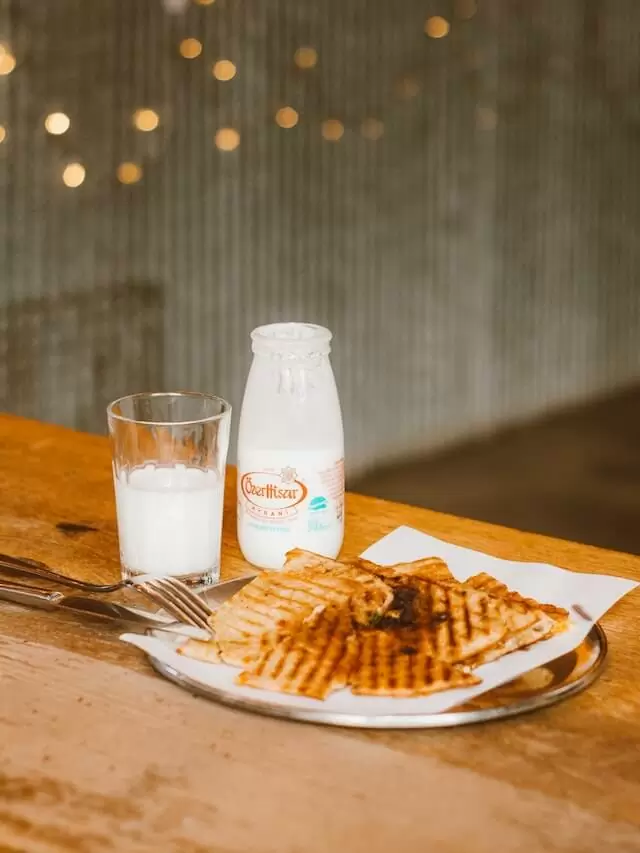
Can We Drink Milk During Periods?
-
Understanding Menstruation
Before starting discussing about can we drink milk during menstruation, let’s quickly go over what happens when a woman has her period. A woman’s body naturally goes through the menstrual cycle to prepare for conception.
It includes the uterine lining being shed, which causes bleeding that frequently lasts a few days. Various physical and emotional symptoms can be brought on by hormonal changes at this time.
-
Nutritional Benefits of Milk
Milk is a nutrient-dense beverage that offers a variety of critical nutrients. It is a top-notch calcium source, essential for keeping teeth and bones strong.
Protein, vitamins, and minerals like vitamin D, B12, potassium, and phosphorus are also included in milk. These vitamins and minerals are imperative for maintaining overall health and well-being. Now, let’s talk about “is milk good for menstruation”.
-
Hydration And Fluid Balance
Maintaining fluid balance during menstruation is crucial because it can aid with symptoms like bloating and exhaustion. Milk, which is mainly made up of water, can assist you in meeting your daily fluid requirements.
Milk and other hydrating beverages can support general hydration during periods and assist in preserving the body’s correct fluid balance.
-
Menstrual Health Benefits Of Calcium
Calcium is essential for controlling muscle contractions, particularly those in the uterus. Adequate calcium levels may lessen the severity and length of menstrual cramps.
A handy approach to ensure you’re receiving enough calcium during your period is to drink milk, which may also improve your menstrual cycle health.
-
Tackling Mood Swings and Emotional Well-being
Hormonal changes associated with menstruation can occasionally cause mood swings, impatience, and emotional instability.
Tryptophan, an amino acid found in milk, helps to make serotonin, a neurotransmitter that fosters emotions of happiness and well-being. Including milk in your diet could help you better control your emotions during your period.
-
Digestive Considerations
Due to blood loss throughout the menstrual cycle, some women may have iron deficiency. Iron is a vital mineral that supports healthy blood synthesis.
It is essential to remember that milk, particularly cow’s milk, includes calcium, which can prevent iron from being absorbed.
If you are worried about your iron levels, consider drinking milk apart from foods high in iron or think about other calcium-rich foods to improve iron absorption.
-
Digestive Factors
Although milk contains essential nutrients, some folks might be sensitive to dairy products or lactose intolerant. The inability to digest lactose, the sugar in milk, is known as lactose intolerance.
If drinking milk causes you to feel queasy or bloated, consider looking into lactose-free substitutes or seek advice from a healthcare provider. Alternatives to dairy milk that can offer comparable nutritional advantages are also available.
-
Personal Tastes And Individual Needs
Lastly, whether or not one chooses to consume warm milk during periods is determined by one’s own personal tastes and needs.
There is no specific reason to avoid milk during your menstrual cycle if you enjoy and tolerate it well.
To keep a balanced diet, it’s vital to locate substitute sources of the nutrients contained in milk if you have any particular dietary limitations or sensitivities.
You may ensure you consume enough calcium by including leafy greens, nuts, and seeds in your diet.
Why Does Milk Stop Menstrual Flow?
In exploring the relationship between milk consumption and menstrual flow, it’s crucial to understand the scientific perspective.
While there are various beliefs about milk influencing menstruation, these are not scientifically supported.
-
Hormonal Regulation Of Menstruation
Contrary to some beliefs, milk does not influence the menstrual flow. Menstruation is a biological process regulated by hormones such as estrogen and progesterone.
The menstrual cycles are controlled by the pituitary gland and ovaries, leading to the shedding of the uterine lining. Milk consumption and other dietary factors do not directly affect this hormonal regulation.
-
Nutritional Impact On Menstrual Health
While overall nutrition plays a role in menstrual health, there’s no direct link between consuming milk and the cessation or alteration of menstrual flow.
Issues like menstrual irregularities are often associated with extreme diets or malnutrition, rather than specific food items.
-
Milk And Hormonal Content
There are concerns about hormones in milk, especially from dairy cows treated with bovine growth hormone (BGH). However, these hormones have not been shown to significantly impact human menstrual cycles.
-
Cultural And Anecdotal Beliefs
The idea that milk can stop menstrual flow may stem from cultural beliefs or anecdotal evidence rather than scientific evidence. Such myths vary across different cultures and regions and have been passed through generations.
-
Potential Indirect Effects
While milk itself does not stop menstrual flow, conditions like lactose intolerance or a milk allergy could cause physical stress, potentially affecting menstrual regularity. These are individual responses and not a widespread effect of milk.
-
Importance of Medical Consultation
For any concerns about irregular menstrual cycles or cessation of menstruation (amenorrhea), it’s vital to seek advice from a healthcare professional.
Such symptoms could be due to various health conditions including hormonal imbalances or reproductive health issues, and should not be attributed to dietary changes alone.
What Is Best To Drink When On Period?
Water is the most extraordinary beverage to have while on your period. During menstruation, staying hydrated is essential for maintaining general health and well-being.
An appropriate water intake supports overall comfort by reducing bloating and preserving the proper fluid balance.
While there are no certain drinks that are always encouraged or forbidden during menstruation, choosing water as your primary beverage of choice is a healthy and advantageous choice.
What Foods To Eat During Periods?
1. Green Vegetables
Most women experience a dip in their iron levels during periods, particularly if their menstrual flow is heavy.
This can lead to bodily pain, fatigue, and dizziness.
Leafy green vegetables like spinach and kale can increase your iron levels.
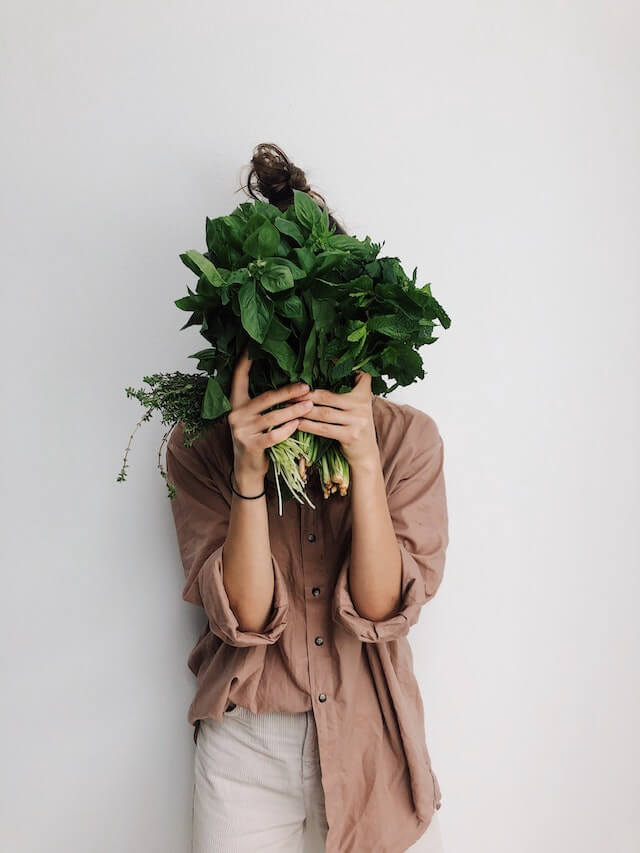
2. Chicken
Chicken is also one of the best iron and protein-loaded foods you should eat during your periods.
Eating protein is vital for your overall health, and it can aid you in staying full and satisfied during your periods.
3. Water
It is imperative to drink a lot of water, particularly during your periods.
Staying hydrated can decrease your odds of getting dehydration headaches.
Ensure to drink at least 8 to 12 glasses of water to prevent bloating.
4. Fruits
Fruits such as cucumber and watermelon can help you stay hydrated.
Sweet fruits can limit your sugar cravings without consuming too much refined sugars, increasing your glucose levels.
5. Dark Chocolate
Dark chocolate is packed with magnesium and iron.
A 100-gram bar of dark chocolate has 67% of the daily intake for iron and 58% for magnesium.
According to a study, people deficient in magnesium have severe PMS symptoms.
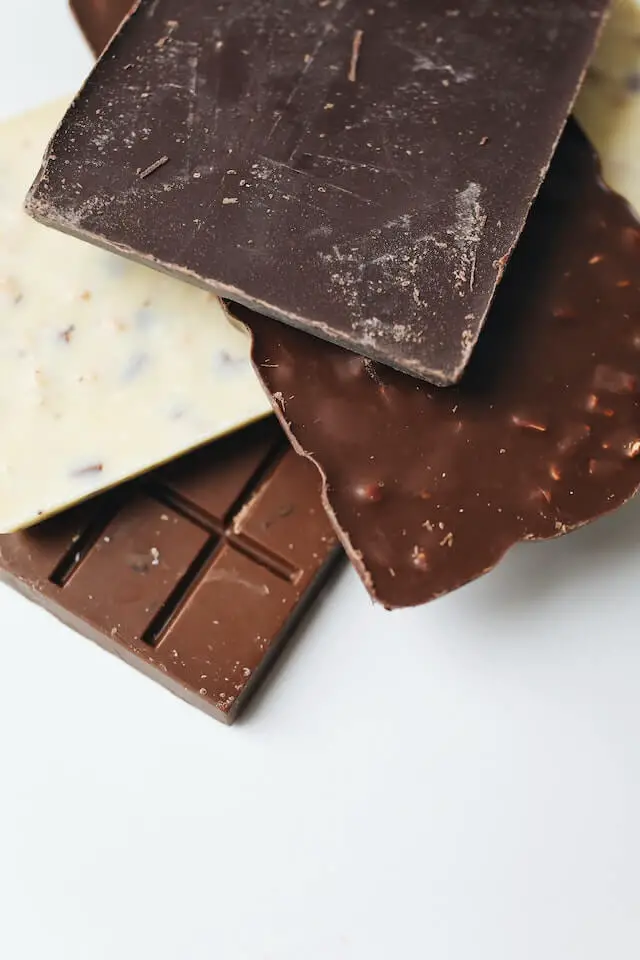
5 Important Things You Should Avoid During Periods
These are the 5 important things you should avoid during periods.
1. Caffeine
Coffee can cause headaches, bloating, and water retention.
However, coffee withdrawal can also cause headaches, so don’t cut out caffeine wholly if you have a habit of drinking 3-4 cups daily.
Coffee might also cause stomach problems. If you get diarrhea during menstruation, it is best to reduce your caffeine intake to stop this from happening.
2. Red Meat
Your body generates prostaglandins during periods.
These compounds aid your uterus in contracting and eliminating the uterine lining, which results in your menstrual flow.
Nonetheless, high prostaglandins level cause cramps. Red meat is rich in iron and prostaglandins, so you should avoid eating it during your periods.
3. Alcohol
Alcohol is also one of the 5 important things you should avoid during periods.
It has many negative impacts on the body, which can worsen your period symptoms.
Alcohol dehydrates you, causes bloating, and exacerbates headaches.
Also, it causes digestive problems, such as nausea and diarrhea.

4. Spicy Foods
Many ladies find that spicy foods upset their stomachs, giving them abdominal pain, diarrhea, and nausea.
If your stomach can’t tolerate spicy foods or you don’t have a habit of eating them, you should avoid them during your periods.
5. Sugar
You can have sugar in moderation, but eating too much of it can cause an increase in the energy followed by a crash that can worsen your mood.
If you feel anxious or moody during your menstrual cycle, keeping an eye on your sugar consumption can help regulate your mood.
Frequently Asked Questions
1. Can We Drink Hot Milk During Periods?
Hot milk can cause gas, bloating, and diarrhea, so avoiding drinking it during your menstruation is better.
2. Can We Drink Milk Tea In Periods?
Tea and coffee can cause stomach problems and worsen menstrual cramps, so you should not drink them during periods.
Instead, you should drink ginger tea, chamomile tea, or peppermint tea.
3. Can We Eat Eggs During Periods?
The protein, iron, B vitamins, and fatty acids in egg yolks are excellent for PMS.
However, if you have a delicate stomach, don’t eat hard-boiled eggs as they can cause bloating, heartburn, and gas.
4. Can We Drink Turmeric Milk During Periods?
Turmeric milk has anti-spasmodic properties that relieve the pains caused during your periods.
It also aids in normalizing the menstrual cycle. If you have a hormonal imbalance or leukorrhea, turmeric milk is best for you.
5. Can We Eat Curd During Periods?
You can eat curd during your menstrual cycle as it helps to relieve cramps and pain and reduce PMS symptoms such as mood swings, gas, and bloating.
You can also drink smoothies, buttermilk, or eat nuts to feel better.
6. What Are The Disadvantages Of Curd During Periods?
Many people think curd can increase period discomfort, but it is not true. These are just age-old beliefs that are only myths.
The curd promotes healthy gut bacteria, decreasing the odds of constipation and bloating, which most females experience during their periods.
7. Why Not To Drink Milk During Periods?
Consuming dairy products like milk, cheese, and ice cream during periods can be problematic. They contain arachidonic acid, an omega-6 fatty acid, which can increase inflammation and period pain.
8. Can Milk Stop Menstrual Flow?
There is no scientific evidence to support the claim that milk can stop menstrual flow. Menstruation is a complex process, controlled by hormones in the body, and is not affected by food or beverage intake.
9. Is Milk Good For Period Cramps?
While milk and other dairy products contain saturated fats that can trigger inflammation and worsen menstrual pain, they also provide calcium. This can help with cramps by controlling nerve activity and reducing calcium deficiencies that cause muscle spasms.
10. Can We Drink Butter Milk During Periods?
Yes, drinking buttermilk during periods can be beneficial. It’s high in calcium, which is important for women, especially when experiencing bloated, crampy, and uncomfortable symptoms. Buttermilk is also rich in vitamins and minerals good for the body.
11. Can We Drink Badam Milk During Periods?
Yes, you can drink almond milk (badam milk) during periods as it’s a nutritious and soothing beverage. Almond milk is rich in calcium, which can help alleviate menstrual cramps. However, individual preferences and tolerances may vary, so listen to your body and adjust your diet accordingly.
12. Why Do I Crave Milk On My Period?
A 2017 study in Obstetrics & Gynecology Science highlighted the positive effect of calcium on PMS. Milk, yogurt, and cheese are good sources, and many foods like bread, cereal, and orange juice have calcium added to them.
13. Can We Eat Curd During Periods?
Curd is recommended during periods, as it is a rich source of calcium, providing strength to bones and the body. Vibha Bajpaie, head dietician at the Asian Institute of Medical Sciences, Faridabad, highlights its probiotic nature, which helps reduce bloating and other digestive issues.
14. Can We Drink Haldi Milk In Periods?
Haldi milk, known for containing turmeric, an antispasmodic, is beneficial during periods. It helps ease menstrual cramps and pain. Drinking hot turmeric milk can contribute to a more comfortable, or happy period. It’s also recommended for pregnant women for an easy delivery.
15. Can We Eat Dairy Products During Periods?
Consuming a lot of dairy products like milk, cheese, and ice cream during periods is not advisable as they contain arachidonic acid, an omega-6 fatty acid, which can increase inflammation and period pain.
16. Can I Drink Horlicks During Periods?
Horlicks does not affect one’s period adversely and can be enjoyed as a comforting pre-sleep beverage during this time.
Conclusion
So, can we drink milk during periods? It is better to avoid drinking dairy milk during periods.
You can drink almond milk, smoothies, or buttermilk during your periods.
Also, drink lots of water to stay hydrated during your menstrual cycle.
If you found my post valuable, please share it with others.
You May Also Like To Read These Posts
- What To Eat During Periods To Increase Flow
- How To Heat Up Food Without Microwave
- How To Boost Your Immune System With Food
- How To Keep Food Cold Without A Fridge
- How To Use A Steamer For Food
- How To Eat Healthy Food Everyday
- How To Eat Peanuts For Weight Loss
- How To Keep Food Hot For Hours? 16 Effective Ways
- How To Tell When Banana Bread Is Done? 5 Reliable Ways
- How To Fix Rubbery Banana Bread? 8 Easy Fixes
- What Makes Banana Bread Dark Brown: Secret Ingredient Uncovered
- 22 Effective Ways How To Cook Food Without Fire And Electricity

